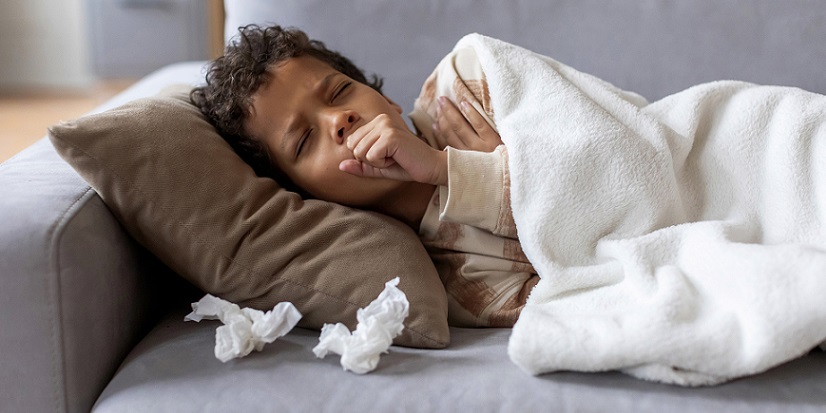Pediatric Pneumonia Cases on the Rise

The current spike in pneumonia cases among children is being traced to the bacteria Mycoplasma pneumoniae, also known as “walking pneumonia.” This type of pneumonia typically affects children ages 5-17 and causes milder symptoms, but they can vary by age. Older kids usually have cold symptoms like fever, cough and a sore throat while kids under five may also experience gastrointestinal issues like diarrhea or vomiting, sneezing, runny nose or wheezing. Otherwise healthy kids tend to do fine with this infection, but those with weakened immune systems or with existing respiratory issues like asthma may have a more serious case of the illness.
Because the symptoms are usually milder, Mycoplasma pneumonia may go undiagnosed for a while. Infected kids may even feel well enough to continue normal activities, hence the nickname “walking pneumonia.” It’s important to get your child checked out so that you know which type of pneumonia they have, as that will affect potential treatment or medication options. If they have had fever, fatigue and coughing for longer than a week, make sure the doctor tests for mycoplasma, which can include a chest x-ray of the lungs, a blood test or a throat swab to confirm the bacteria.
Though many of us often think about infants or adults over 65 when it comes to pneumonia, anyone can get it. This common lung infection happens when the air sacs in one or both lungs fills with fluid or pus and becomes inflamed. The two most common types are bacterial, which is what many are seeing across the country, and viral pneumonia, caused most often by the common cold, respiratory syncytial virus (RSV) or the flu. This type may cause similar symptoms, plus chest pain when breathing or coughing, chills, and fatigue.
When respiratory viruses like the flu are up, there’s always the chance pneumonia cases will be up too. That’s another reason why the flu vaccine is recommended as your best protection now, before flu season ramps up. For children under 5 and adults over 65, there’s also the pneumococcal vaccine, which offers protection from a common form of bacterial pneumonia.